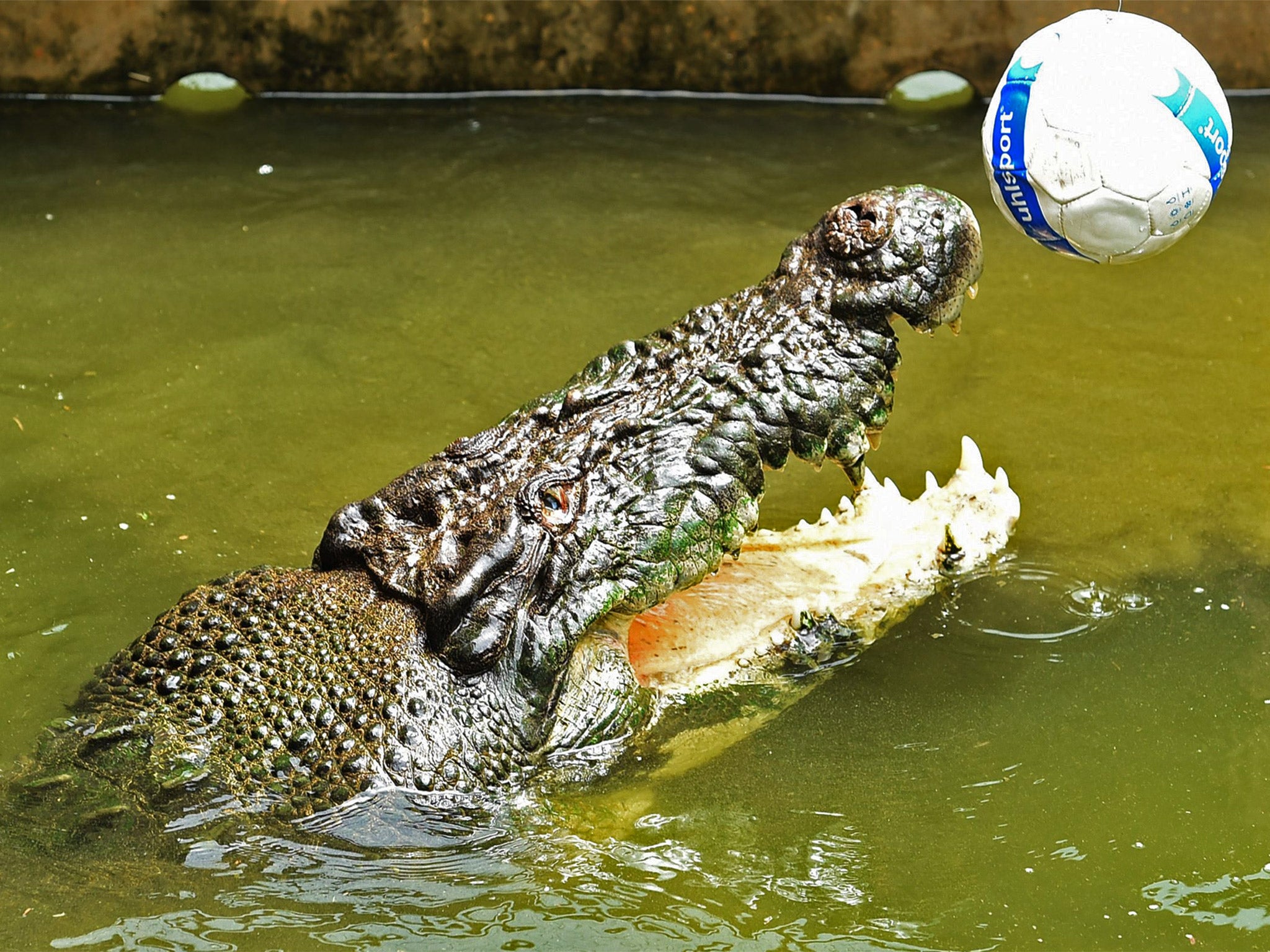Crocodiles just wanna have fun: Scientists observe deadly reptiles at play
Creatures have been known to give piggybacks and play ball

Even ruthless predators need to have fun in their downtime. Crocodiles may be among the most frightening of creatures, but research suggests that they enjoy surfing, playing with balls and giving piggybacks to their friends.
Vladimir Dinets, a psychology professor at the University of Tennessee, has studied crocodiles for a decade and insists that, while they may be hard-scaled killing-machines on the outside, they are great big softies underneath.
In the first scientific study of crocodiles at play, he found they are capable of forming playful relationships, not only with each other but with other species such as river otters and even humans.
“A man who rescued a crocodile that had been shot in the head became close friends with the animal. They happily played every day until the crocodile’s death 20 years later,” said Professor Dinets, who has spent 3,000 hours, or 125 days, observing the creatures.
“The croc would swim with his human friend, trying to startle him by suddenly pretending to attack him or by sneaking up on him from behind, and accept being caressed, hugged, rotated in the water and kissed on the snout,” Professor Dinets said, hinting at a macabre quality that seems to recur in much of the crocodiles’ play.
He has identified three ways in which members of the crocodilian family have fun.
Most commonly, by playing with all manner of objects, such as balls, floating debris such as twigs, grass and flowers, streams of water, ceramic objects and even dead animals.
In one case a crocodile spent 25 minutes repeatedly throwing the carcass of a hippopotamus calf in the air “spinning and jumping and splashing” before walking off without taking a bite. In another, a crocodile spun a dead sambar deer six times by the neck, again without eating any of it, said Professor Dinets, who advises zoos to take note of the animal’s proclivity towards play.
“Hundreds of thousands of crocodilians are now kept in captivity in zoos, commercial farms and breeding centres set up for endangered species. Providing them with toys and other opportunities for play makes them happier and healthier,” he said.
Professor Dinets also observed crocodiles playing with each other. He saw baby alligators riding on their older friends’ backs, young caimans playfully “courting” each other and a male crocodile giving his lifetime mate rides on his back.
Finally, crocodiles engage in “locomotor” play, engaging in unnecessary movement for fun. Examples include young alligators repeatedly sliding down slopes, crocodiles surfing ocean waves and caimans riding currents of water in their pools.
The research, published in the journal Animal Behaviour and Cognition, builds on previous work at the University of Tennessee, which defined “play” in a way that allows it to be identified in species not previously thought capable of play, such as wasps and fish.
This new study provides further evidence that play is a universal feature of “intelligent” animals, defined as those species which exhibit complex, flexible behaviour.
Join our commenting forum
Join thought-provoking conversations, follow other Independent readers and see their replies
0Comments